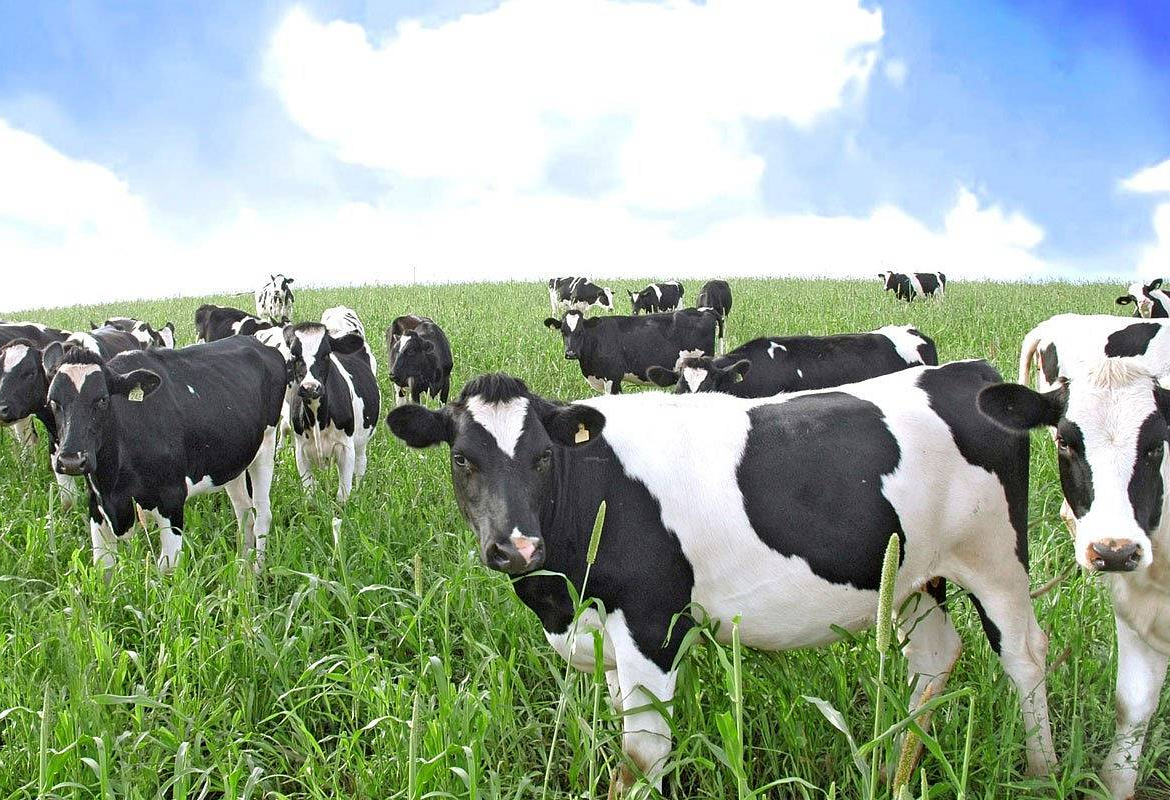
Colostrum
Colostrum is the fluid produced by mammary glands during the first 2 to 4 days after birth, before milk is produced. It is a rich natural source of nutrients, antibodies, and growth factors for the newborn. Bovine colostrum is collected from dairy cows shortly after calving.
New Zealand Colostrum is known to be superior mainly due to the processing method, but also important is the fact that New Zealand collects Colostrum once a year during natural calving from year round pasture fed cows. These cows are antibiotic free and free from hormones see the attached certification. NZ milk products are also certified BSE free. New Zealand Colostrum is never frozen, only chilled and then spray dried at low heat, protecting the sensitive bio-enzymes. New Zealand collects Colostrum from all over the Country, it is then blended together therefore enlarging the environmental exposure and variety of cows that Colostrum is collected from widening the defensive net against a wider variety of pathogens. Most of the larger Countries collect Colostrum from region specific cows limiting the variety of pathogens that the antibodies
How does bovine colostrum benefit humans? Bovine Colostrum is a great choice for human supplementation.
- The molecular structure of bovine colostrum is very similar to that found from humans, which means it will work effectively in both species.
- Bovine colostrum contains greater levels of some of the valuable factors contained in human colostrum. For example, the important immunoglobulin( IgG), which is needed to bind pathogens, only makes up 2% of human colostrum, while in bovine colostrum; this IgG is available at a concentration of around 20%.
- The quality of New Zealand bovine colostrum is very carefully managed. This colostrum is processed and packaged at a low temperature which ensures the integrity and bio-activity is maintained. Our product is never frozen thus preserving the valuable bio-active components.
- Bovine colostrum contains special compounds called glycoproteins and trypsin inhibitors. These compounds prevent the digestive juices in the human stomach from destroying the immune and growth factors in colostrum, ensuring effectiveness.

Immunoglobulins and growth hormones The most important components of bovine colostrum can be broken down into two major categories: immune system factors and growth factors. Immunoglobulins, also called antibodies, are proteins produced by the immune system in response to bacterial, virus or other foreign invasion. Immunoglobulins make up over 50% of the protein component, providing specific anti-microbial protection by neutralizing bacteria, bacterial toxins, viruses and some parasites.
Immunoglobulins:
Immunoglobulin A (IgA): IgA is one of the most prevalent antibodies produced by the immune system. It is found in all bodily secretions and is the major antibody in the mucous membrane lining the intestines and respiratory tract.
Immunoglobulin G (IgG): IgG is a specialized immune protein that responds to invasions of the lymphatic and circulatory system by bacteria, fungi and viruses.
Immunoglobulin M (IgM): IgM is the first immunoglobulin produced when foreign substances, such as bacteria, invade the body. It is found in circulating fluids, and destroys bacteria.
Immunoglobulin E (IgE): IgE is concentrated in the lung, the skin and the cells of mucous membranes. Mucous membranes are surface linings that protect certain organs, such as the respiratory and gastrointestinal tracts. IgE also provides the primary defense against environmental antigens, and is highly anti-viral.
Growth factors include:
Growth hormone (GH)
Insulin-like growth factor 1 and II (IgF-1 & IgF-II)
Transforming growth factors A & B (TgF A & B)
Epithelial growth factor (EGF)
Fibroblast growth factor (FGF)
Platelet-derived growth factor (PDGF)
Gonadotropin releasing hormone and associated peptide (GnRH & GAP)
